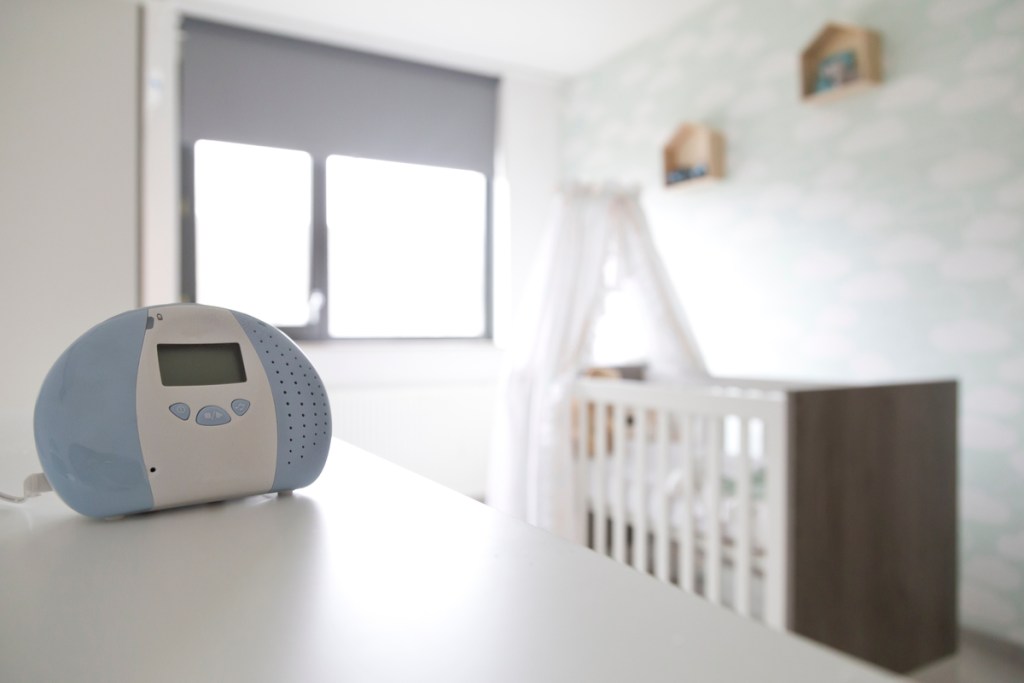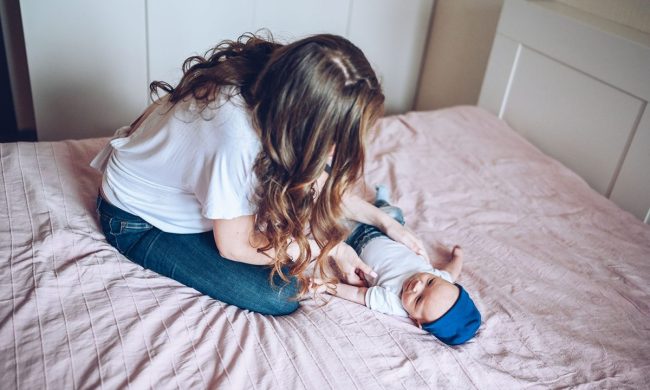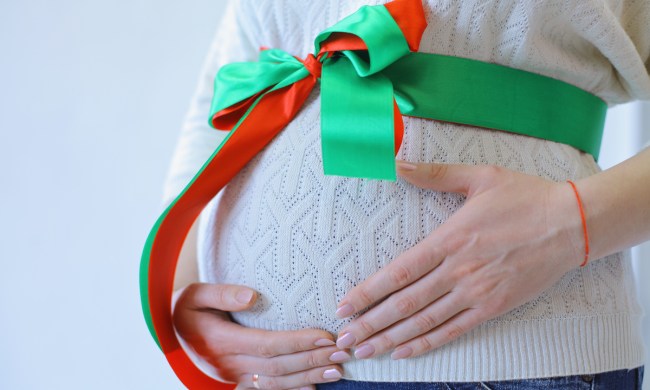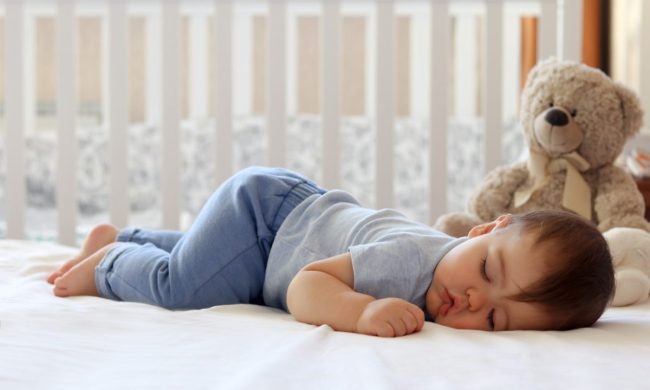Babies and not sleeping go together like peanut butter and jelly. Or like a zombie parent and a baby that won’t sleep. If your child just won’t go down without a fight, you’ve probably been told to try white noise by someone trying to help everyone get their rest. So, what is white noise exactly? And, more importantly, is white noise bad for baby’s sensitive ears?
While not all bedtime noises are created equal, there are benefits from introducing white noise to your baby’s bedtime routine. Let’s go over the basic information on this soothing sound of life and see if it could help your baby fall asleep easier.
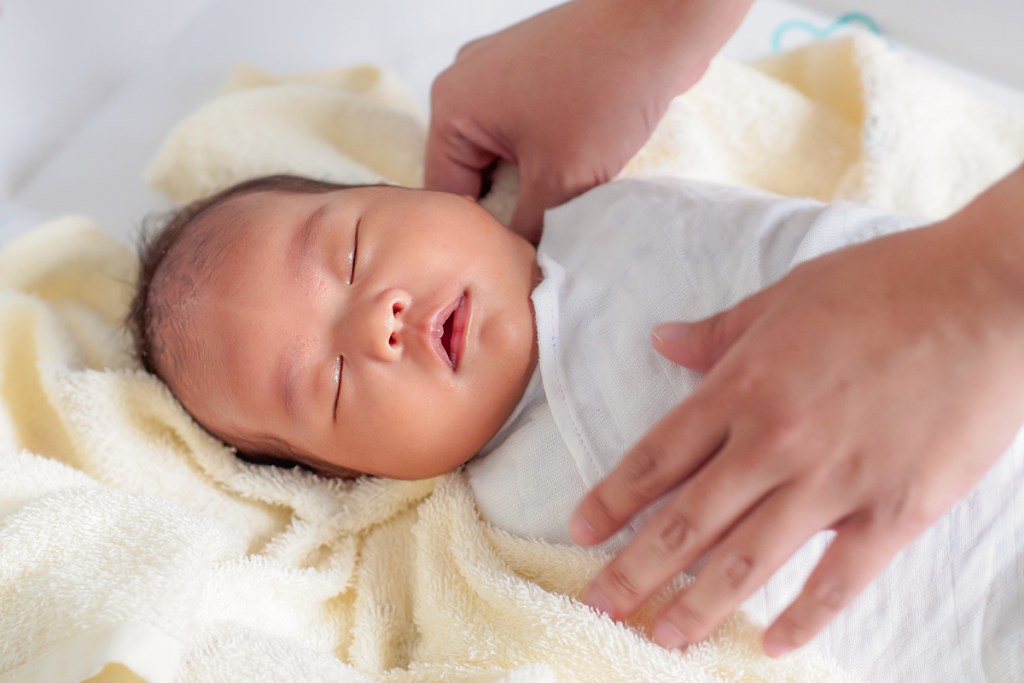
White noise must-know basics
What is white noise?
When you hear the term “white noise” you might have flashbacks to the sound of tv static from when you were a kid. As an adult, your favorite white noise is probably your ceiling fan. The technical definition of white noise is “the noise that has the same amplitude, or intensity, throughout the audible frequency range.” Basically, it’s the noise that blocks out other sounds.
Is there a volume the noise should be at?
There is absolutely a volume level you need to pay attention to the white noise being at. According to the American Academy of Pediatrics, the recommended level is 50 decibels and for the noise to be at least 7 feet away from baby’s ears.
You shouldn’t leave a white noise machine on all night either. If using a machine, have it on until your baby falls asleep, then turn it off. This reduces the risk of any potential cons, even if you are following the proper level and distance guidelines.
Is there one type of white noise that works best?
Every baby is different and will have their own favorite type of white noise. The fun part as a parent is finding that specific noise to lull your special little one to sleep.
There are a ton of machines out there if you want to grab one to do the job. You could always go the old-fashioned route and turn the ceiling fan on. Another oldie but goodie is putting on a classic kid’s tv show with the volume almost at zero.

Possible cons of using white noise
Anything is dangerous for a baby if not used properly. When it comes to white noise, it could be harmful in certain situations.
It could increase the risk of hearing issues
The main issue is that the noise could damage the baby’s hearing. Their sensitive little eardrums can’t handle loud noises. If the noise is too loud or too close to their ear, over time the baby could lose some of their hearing.
It could delay speech development
If your baby experiences hearing loss, they’re going to have a harder time learning and developing their language skills. One could lead right into the other, so be mindful of the noise machine around your baby.
Babies could become dependent on the noise
If you automatically add the white noise every night, your little one could have a tough time falling asleep if they don’t have that noise every time. This will make it harder for your baby to fall asleep anywhere you can’t recreate the noise or bring the machine.

The pros of using white noise
There are definite benefits to white noise. Used properly, white noise makes bedtime easier for everyone.
It helps babies fall asleep
This one is the whole point of white noise. When a baby is a little restless and won’t fully go down, a little added noise does the trick. It helps your baby fall asleep in as little as 5 minutes according to one study.
It helps them sleep through sibling noises
Siblings don’t mean to wake up the baby, but they do. White noise in the background softens the clamor of other children being children. If you have more than one child, white noise could be the only thing that gets that baby down for a nap.
Possibly reduces risk of SIDS
While there is still so much we don’t know about Sudden Infant Death Syndrome, there have been studies done where having a fan on as the source of white noise helped reduce the risk in children under a year old.

If you do use white noise, keep a few things in mind
If you decide white noise is for your little one, and your baby absolutely loves the background soundtrack, you still want to know a few protocols and other tips.
When to use it
The machine or noise isn’t supposed to be an automatic, every night type of deal. It’s used for the nights when your tot won’t fall asleep after the normal routine is complete. If you use it more often than not, that’s OK, too. Parents worry about enough as it is, so the noise machine should be lower on the totem pole.
You could wean your baby off of it anytime
You don’t have to wait until your babe is a certain age to ditch the white noise — or to start using it. If you want your little one to start falling asleep with it at a few months old, then go ahead. If your baby hasn’t needed it so far, but just hit 10 months old and no one is sleeping through the night, give it a try.
If your little one seems to be sleeping fine on their own or you’ve found you haven’t even turned the machine or other noise on in weeks, then stop using it if you don’t want it as a part of your routine anymore. It is supposed to help you and your baby, not make your life more difficult.
There are other colors to try
Not only is there white noise you could try on your little one, but there are pink and brown noises that work to help put your baby to sleep. These are things you may love to hear and automatically calm you, and with good reason. These noises aid with falling asleep faster and staying asleep longer. Even parents who need help with sleep should give these sounds a try.
Pink noise
Rain, wind, leaves rustling, and your heartbeat are all pink noises.
Brown noise
Thunder, rumbling animal noises, and a heavy waterfall are brown noises.
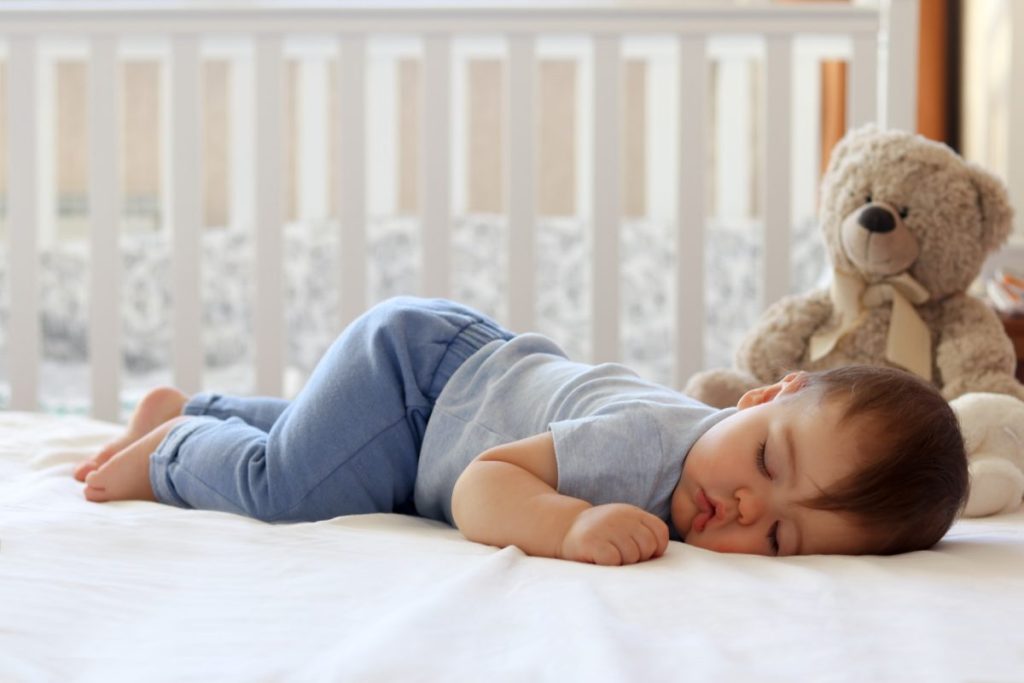
Myths about white noise
Dr. Harvey Karp, a pediatrician and a fellow of the American Academy of Pediatrics, states there are some myths out there about white noise you should know about.
It has to be on a quieter setting
It’s safe to set the noise to at least 50 decibels. Though you don’t want to go too high, turning it up to 65 decibels is fine to do. A vacuum hits 75 decibels, and how many of us have vacuumed near a sleeping baby? Exactly.
All babies love white noise
No, they do not. Some babies don’t like it. It’s going to be a trial-and-error process to see if your baby enjoys white noise. Each baby is a snowflake when it comes to liking things.
White noise is only for a certain age
Babies have sleep regression at different points during the first year and beyond. There isn’t a certain month where a baby will or will not need white noise. Some of us adults can’t fall asleep without our favorite comfort show in the background. There is no age where white noise has to go away.
So, is white noise bad for babies? No. As long as you are mindful of the volume, the distance from your baby’s ears, and the duration of the noise, your baby can benefit from white noise.
We are all constantly surrounded by some kind of noise. Don’t you nap better when you have a window open and the sounds of the city help you drift off to sleep? Use the power of white noise to your advantage (in a safe way) so all you hear is your little one’s adorable soft snores.
